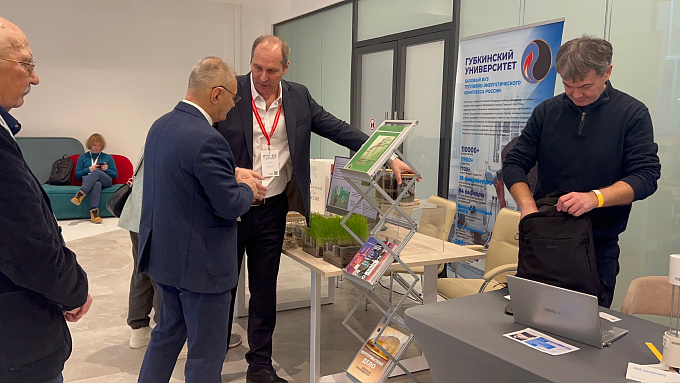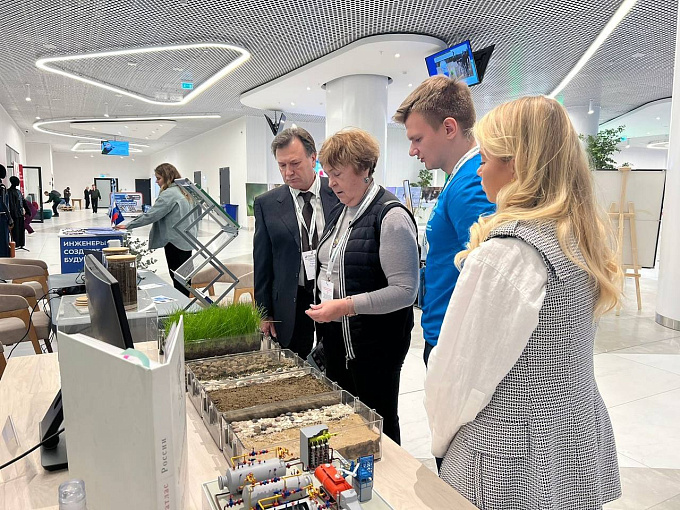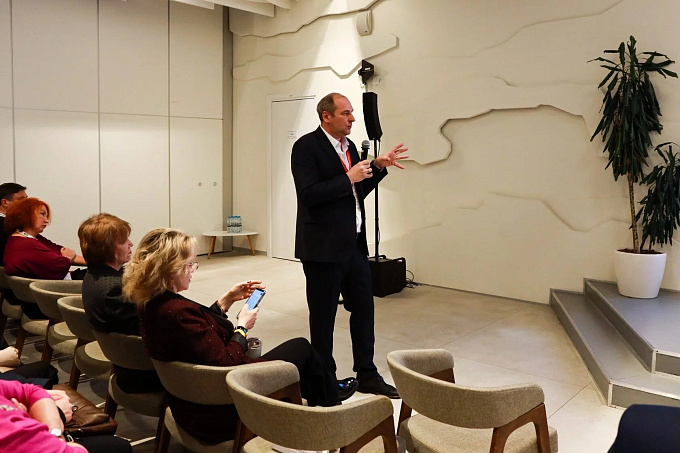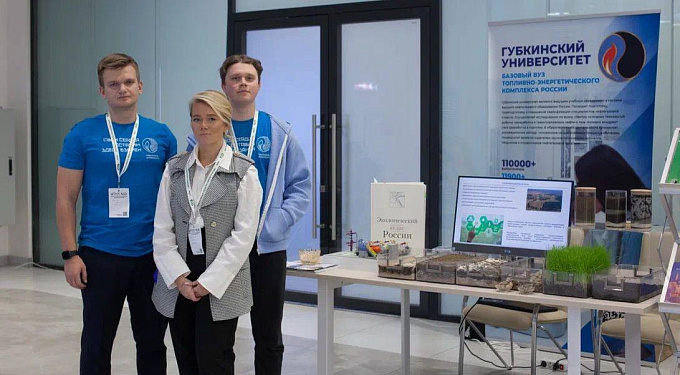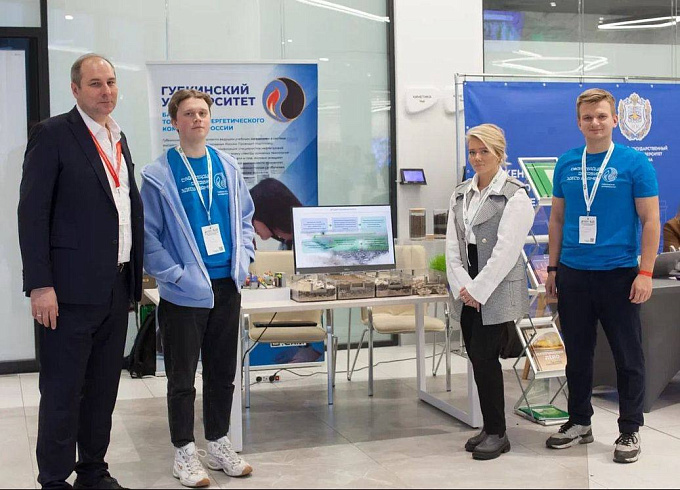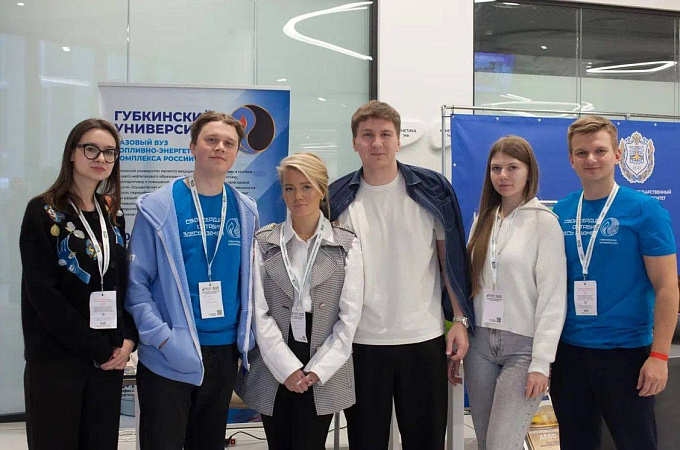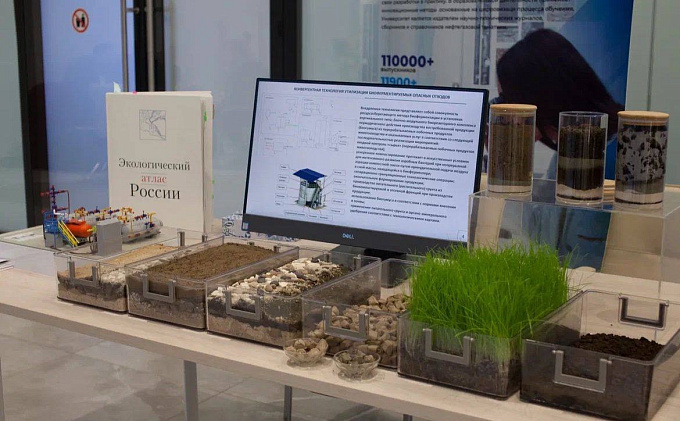University representatives at the international forum "Ecology of the Future"
On November 30, 2024, the international forum "Ecology of the Future", dedicated to the 100th anniversary of the All-Russian Society for Nature Conservation was held at the Lomonosov Moscow State University Scientific and Technological Center "Vorobyovy Gory".
The international forum "Ecology of the Future" is a platform for discussing key environmental issues, forming guidelines for state policy in the field of environmental protection and nature management, creating conditions for an open dialogue between the government, society and business.
In total, the forum brought together more than 2,500 representatives of business, the public, state and executive authorities, the scientific community, experts, journalists, students, schoolchildren and volunteers.
The forum was opened by the Chairman of the All-Russian Society for Nature Conservation, First Deputy Chairman of the Committee of the State Duma of the Federal Assembly of the Russian Federation on Ecology, Natural Resources and Environmental Protection, UN Goodwill Ambassador Vyacheslav Fetisov.
“One hundred years ago, the world’s largest nature conservation organization was formed in our country. Even in the most difficult times: the years of war, famine and devastation, the protection of our native nature remained the most important topic for citizens and the country’s leadership, being the life’s work of true nature enthusiasts – members of the All-Russian Society for Nature Conservation. To revive the authority of the Society, its mass character, to share the invaluable accumulated experience of work at the All-Russian and international levels is our common task,” he recalled in his speech.
The forum program included an extensive business part: a plenary session, panel discussions, round tables, seminars and meetings, as well as the educational and exhibition events.
The forum included a session entitled "Education and Technology for the Protection of Nature", where participants discussed how education and technology can effectively interact to protect nature. The speaker of the session was Sergei Ostakh, a member of the Scientific Expert Council of the All-Russian Society for Nature Conservation, head of the educational and scientific complex of physical and chemical foundations of environmental protection at the Institute of Physical Chemistry and Electrochemistry of the Russian Academy of Sciences, and associate professor of the Department of Industrial Ecology at Gubkin University.
The forum also included an exhibition where Gubkin University students Dmitry Komarov (CHEM-23-06), Danila Andrianov (CHEM-24-06), and Anastasia Smirnova (CHE-21-09) presented the university's scientific developments in industrial ecology to participants and visitors:
1. Convergent technology for the production and use of geocomposite material (GCM). GCM is obtained by recycling hydro aluminosilicate waste with the addition of multifunctional functional complexing additives. GCM is applicable as a component of construction mixtures, for backfilling temporary waste accumulation sites, quarries, as well as for backfilling temporary access roads to production infrastructure facilities and installing insulating backfill layers at waste disposal sites.
2. Technology for cleaning up areas contaminated with stored petroleum products. The technology involves outlining and localizing oil pollution with environmental barriers to prevent further negative impacts on the environment. Circulation wells and bioinjection of oil-degrading compounds are also used.
3. Technology for obtaining and using a soil modifier with a fire-extinguishing effect. It is proposed to use cut detoxified soil with the addition of a fire-extinguishing sorbent-recultivator (soil modifier) as a fire-extinguishing agent. For these purposes, the soil-cultivating method of localizing and extinguishing a fire in conditions of various types of soil and variable mesorelief of the terrain is applicable, excluding ignition and movement of a ground fire. The main area of application of the prolonged-action soil modifier is the reclamation of disturbed, oil-polluted and radionuclide-containing lands.
4. Development of a technology for the preparation of super-strong concrete mixtures by processing with an ultrasonic multi-frequency acoustic field. Both laboratory installations and mobile complexes have been developed and created, allowing for a series of laboratory experiments on quasi-static ultrasonic baths with different frequencies of action, as well as different amplitudes and spectra of acoustic impact, conducting experiments in the dynamic mode of flowing liquid cement mortar through a resonant channel-simulator.
